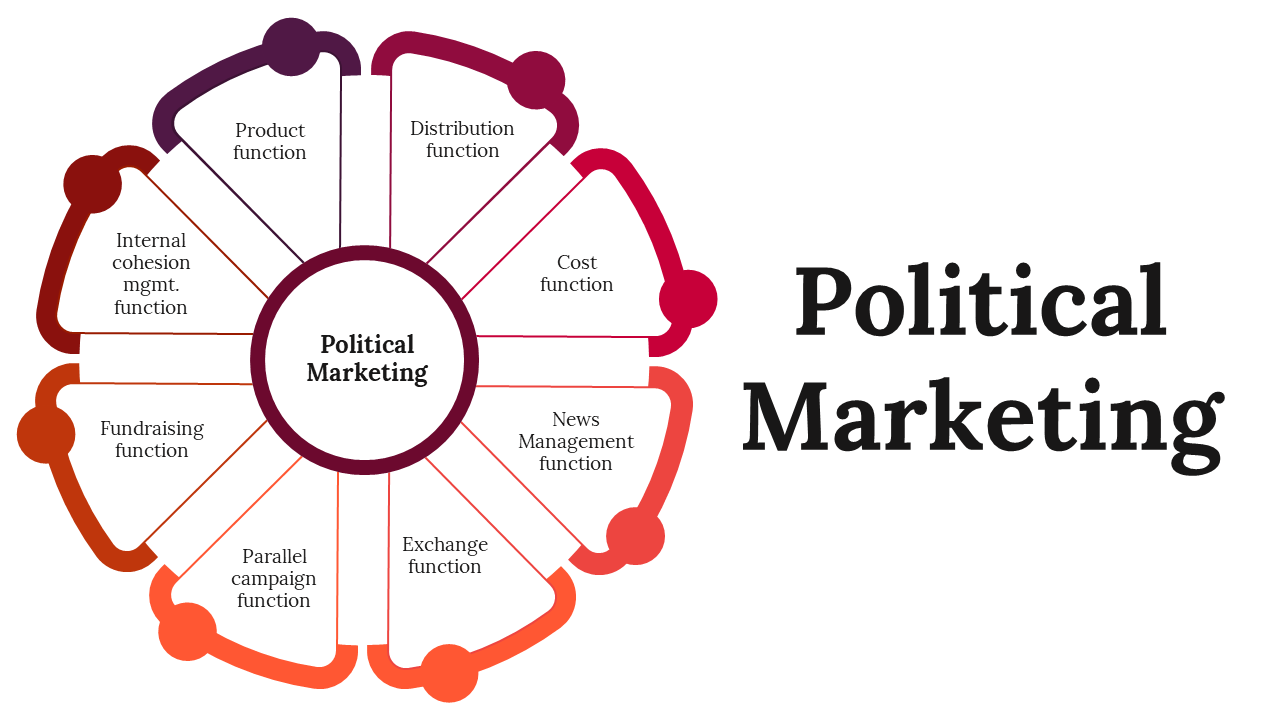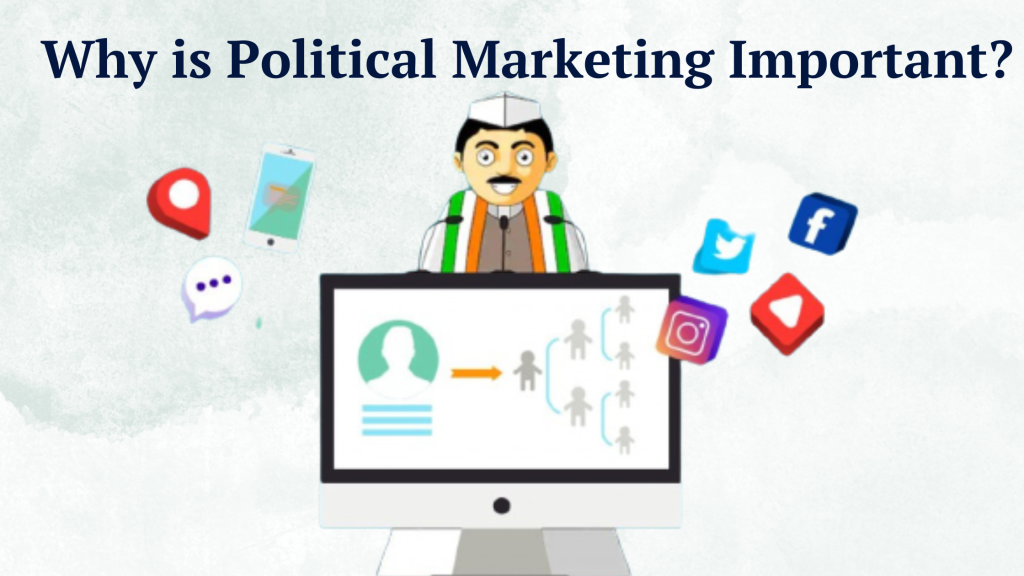Political marketing is a term used to describe the application of marketing principles and techniques to the political realm. It involves the promotion of candidates, parties, and policies using various communication channels and strategies. In today’s world, where elections are highly competitive and media plays a crucial role in shaping public opinion, political marketing has become an essential aspect of any succesful campaign.
The concept of political marketing emerged in the 1960s when television became a popular medium for reaching out to the masses. With time, it has evolved into a sophisticated discipline, incorporating elements from market research, advertising, public relations, and branding. In this article, we will delve into the world of political marketing and explore its various aspects.
Understanding The Basics of Political Marketing
Political marketing aims to influence people’s behavior and opinions towards a particular candidate, party, or policy. It involves understanding the needs and desires of the target audience and crafting messages that resonate with them. Like traditional marketing, it also involves segmentation, targeting, and positioning strategies to reach out to different demographic groups.
The key difference between political marketing and commercial marketing is that the former is used for promoting public interest while the latter is focused on selling products or services. However, in recent years, these lines have blurred as political campaigns have started using commercial marketing techniques such as branding and celebrity endorsements.
Elements of Political Marketing
Political marketing consists of several elements that work together to create a successful campaign. These include:
- Political Branding
Branding is an essential aspect of political marketing as it helps create a unique identity for the candidate or party. A strong brand can evoke emotions and connect with people on a deeper level, making them more likely to support the candidate or party.
- Campaign Messaging
The messages used in political campaigns play a crucial role in shaping public opinion. They should be clear, concise, and relevant to the target audience. Political campaigns often use slogans, catchphrases, and soundbites to convey their message effectively.
- Media Strategy
With the rise of social media and 24-hour news cycles, having an effective media strategy is crucial for political campaigns. It involves targeting specific media channels, creating compelling content, and managing the candidate’s public image.
- Market Research
Market research is a vital component of political marketing as it helps understand the needs and preferences of voters. It involves conducting surveys, focus groups, and data analysis to gather insights that inform campaign strategies.
The Role of Technology in Political Marketing
The use of technology has revolutionized political marketing in recent years. From data analytics to social media advertising, technology has made it easier for campaigns to reach out to their target audience and engage with them. Here are some ways in which technology is used in political marketing:
- Data Analytics
With advancements in data analytics, political campaigns can now gather large amounts of data on voters and use it to devise targeted strategies. Data analysis helps identify potential voters, understand their behavior, and tailor messages that resonate with them.
- Social Media
Social media has become a powerful tool for political marketing as it allows campaigns to reach out to millions of people at once. Platforms like Facebook, Twitter, and Instagram offer targeted advertising options that allow campaigns to reach specific demographics.
- Online Fundraising
Technology has made it easier for candidates and parties to raise funds through online platforms. With the click of a button, supporters can make donations towards the campaign, making it easier for political organizations to raise money quickly.
The Ethical Concerns Surrounding Political Marketing
Political marketing has received criticism for its manipulative techniques and disregard for ethical practices. Some of the ethical concerns surrounding political marketing include:
- Transparency and Accountability: Political marketing raises ethical concerns regarding transparency and accountability. It often involves the use of propaganda tactics to sway public opinion, without disclosing the sources of information or funding behind the campaign. This lack of transparency can result in a lack of accountability for the actions and promises made by political candidates.
- Targeting Vulnerable Populations: Another ethical concern surrounding political marketing is its tendency to target vulnerable populations such as low-income individuals, minorities, and those with limited access to information. These groups may be more easily swayed by persuasive techniques used in political campaigns, leading to potential exploitation and manipulation.
- Manipulation through Emotional Appeals: Political marketing often relies on emotional appeals to manipulate the public’s feelings and actions. This can be seen through the use of fear-mongering or misleading information to create a sense of urgency or crisis. Such manipulation can have detrimental effects on individuals and society as a whole.
- Invasion of Privacy: With the rise of digital marketing, political campaigns can collect vast amounts of personal data from individuals without their knowledge or consent. This raises concerns about invasion of privacy and potential misuse of personal information for targeted advertising and messaging.
- Stereotyping and Polarization: Political marketing can perpetuate harmful stereotypes by targeting certain demographics with specific messaging, leading to further division and polarization within society. It can also contribute to a narrow-minded view of political issues, as individuals may only be exposed to one side of the argument.
- Manipulation through Micro-targeting: Micro-targeting is a common practice in political marketing where specific messages are tailored to individual voters based on their data. While this can be effective in reaching and persuading voters, it also raises concerns about manipulation and deception by tailoring information to fit an individual’s beliefs or biases.
These ethical concerns highlight the need for stricter regulations and ethical guidelines in political marketing. Political campaigns need to prioritize transparency, fairness, and respect for individuals’ privacy and dignity.
Additionally, it is crucial for citizens to critically evaluate the information presented to them during political campaigns and be aware of potential manipulation tactics. As responsible citizens, we must hold political candidates accountable for their actions and demand ethical practices in political marketing. Only then can we ensure a fair and just democratic process. Therefore, it is necessary for both politicians and citizens to actively address these concerns and work towards creating a more ethical approach to political marketing.


